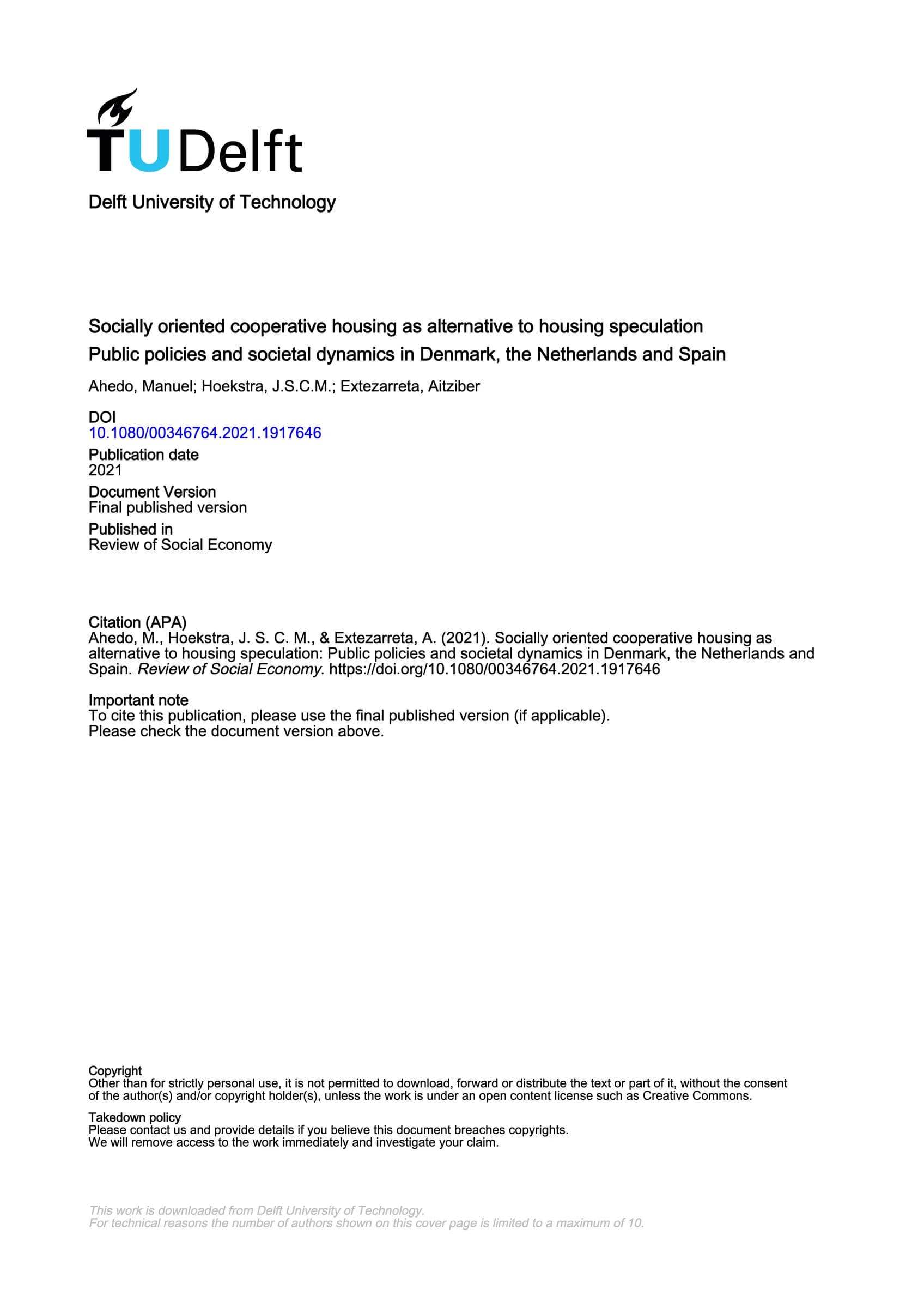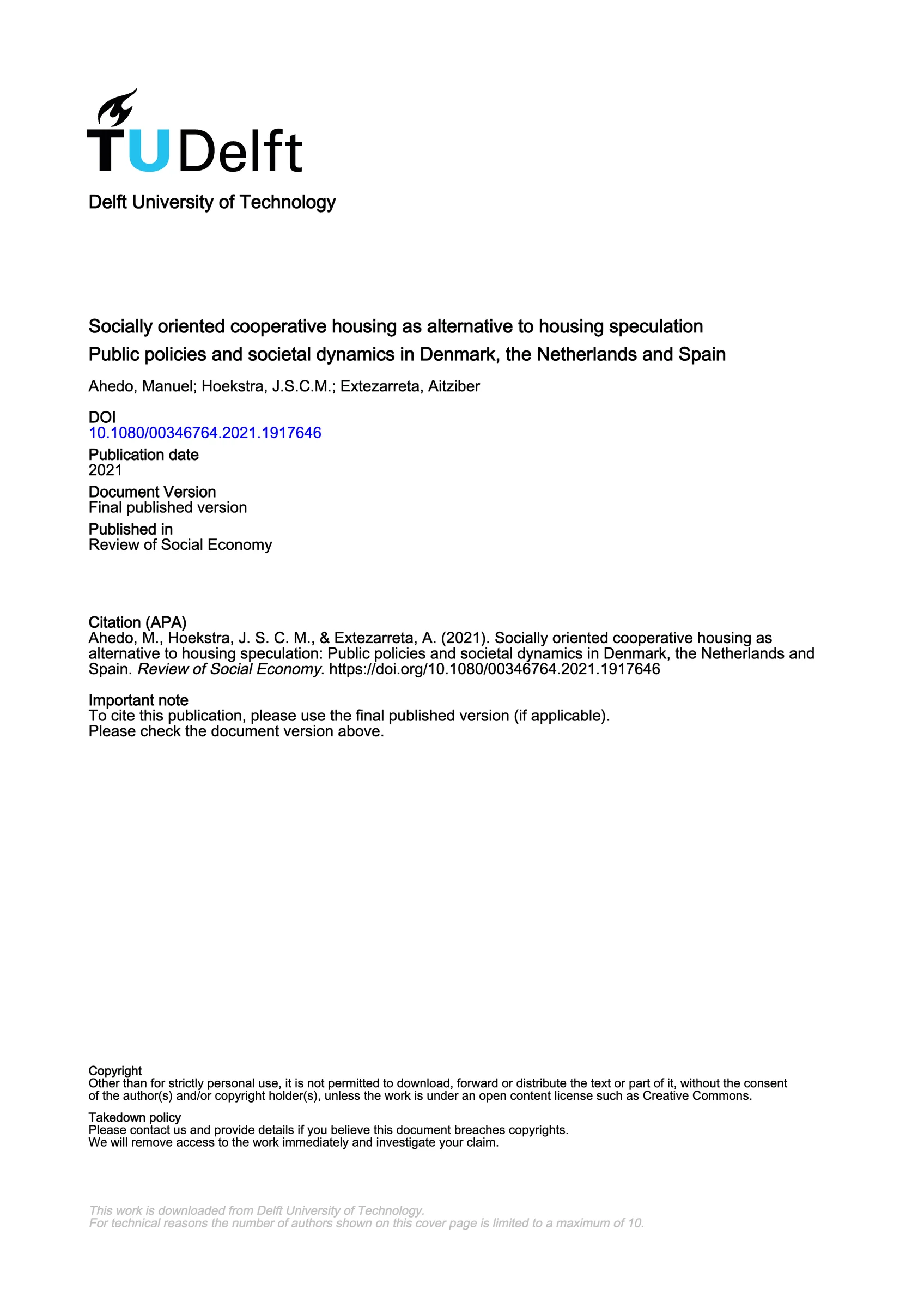AI-Generated Summary
Context and Authors
This document discusses the role of socially oriented cooperative housing as an alternative to housing speculation, highlighting public policies and societal dynamics in Denmark, the Netherlands, and Spain. The authors, Manuel Ahedo, Joris Hoekstra, and Aitziber Etxezarreta, are affiliated with various academic institutions, including Delft University of Technology and the University of Copenhagen, and have expertise in housing studies and social economy.
Housing Systems and Speculation
National housing systems in Europe are increasingly characterized by a mix of private property, social rental, and cooperative housing. The dominance of private ownership has led to significant housing speculation, contributing to economic inequality and instability. Cooperative housing is proposed as a viable alternative to mitigate these issues, fostering socio-spatial cohesion within communities. The article examines cooperative housing's development in three distinct European contexts, focusing on the regulatory frameworks and societal actions that enable these housing cooperatives. 🇩🇰 Denmark's Cooperative Housing Model In Denmark, cooperative housing, known as andelsbolig, comprises around 7-8% of the housing stock. The system allows members to purchase shares in a cooperative, granting them the exclusive right to use a dwelling. The government has historically supported these cooperatives, but recent neoliberal policies have introduced challenges. The majority of cooperative housing is located in urban areas, particularly Copenhagen, where it caters to the middle and working classes. However, the sector faces pressures from rising private market values and speculation, especially after the 2008 financial crisis. 🇳🇱 The Netherlands: Renewed Interest The Netherlands features a housing policy system where higher-income groups typically occupy owner-occupied homes, while lower-income groups reside in the social rental sector, which accounts for over 30% of the market. While cooperative housing remains a minor sector, interest is growing, particularly after the renewal of housing laws in 2015 that recognized cooperatives as a legitimate housing form. Municipalities are beginning to support cooperative initiatives, although access to finance remains a significant barrier for potential cooperatives. 🇪🇸 Spain: Emerging Cooperative Models In Spain, home ownership is deeply rooted in the culture, with approximately 78.9% of the population owning their homes. However, the 2008 financial crisis spurred interest in alternative housing models, including cooperatives. The country is witnessing the emergence of various types of cooperatives, including self-construction and management cooperatives. Regulatory frameworks vary by region, with some local authorities actively promoting cooperative housing, while others have faced challenges in implementing supportive policies.
Conclusion and Future Directions
The comparative analysis of cooperative housing in Denmark, the Netherlands, and Spain reveals both common challenges and unique opportunities. As urban populations face escalating housing costs and speculation, socially oriented cooperative housing offers a promising alternative for creating equitable housing solutions. Effective public policies and regulations are essential for supporting cooperative housing initiatives and fostering social cohesion in diverse communities across Europe.

